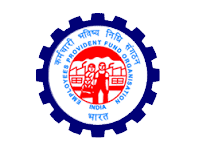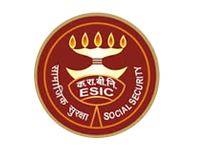Centre for Gender and Labour Studies has been set up to address and strengthen the understanding of gender issues in the world of work. Gender equality and empowerment of women have been the cornerstone of developmental policies of many countries across the globe and are critical towards achieving Sustainable Development Goals. The gender gap in labour force participation rates and unemployment rates are persistent features of the global labour markets. These issues need to be addressed to ensure gender equity in the world of work which necessitates intensive efforts both at the academic and policy level.
Labour market gender gaps are more prominent in developing countries and are often exacerbated by gendered patterns in occupational segregation with the majority of women’s work being concentrated in a narrow range of sectors that remain vulnerable and insecure. These workers are mostly engaged in informal employment as domestic workers, self-employed, casual workers, piece-rated workers, home-based workers and migrant workers with low skills resulting in lower earnings and low productivity. Further, the gender pay gap and wage differentials continue to be a severe concern that requires constant efforts from all stakeholders. Apart from this, the contribution of women to the national economy is still subject to more underreporting and misrepresentation in comparison to the contribution of men. The conventional labour statistics provide a partial perception of reality as they are unable to capture women’s work adequately. Given the challenges women are facing in the labour market and the gendered nature of labour markets, specific mechanisms are needed so that gender concerns are mainstreamed both at the formulation and implementation level by policymakers. The promotion of gender equality and empowerment of women is fundamental for achieving the new targets of full productive employment; sustainability and social inclusion to mark the global goals of sustainable development.
For accomplishing inclusive development and substantive equity, awareness of policies, skill development, capacity building, social dialogue and empowerment through training and research would be some of the major activities undertaken by the Centre for Gender and Labour Studies. Within this framework, the Centre for Gender and Labour Studies is set up to conduct policy-oriented research; impart training, conduct workshops/seminars, consultancy work, publications etc on various dimensions related to gender in the world of work. The Centre also aims to promote interdisciplinary research for informing public policy in emerging areas of gender and labour studies.
Major Research Projects completed / initiated by Dr. Shashi Bala are intimated below:
( to be updated as per the research details intimated by Dr. Ellina Samantroy, Fellow)
- Working Women in Urban India: Concerns and Challenge
- Employment Process of Migrant Domestic Help: A Case of Metro Cities in India
- Labour Market Participation of Working Women Post Maternity: A Case of Private Sectors
- Implementation of the Maternity Benefit Act
- Training Module on Gender & Social Security for Corporate Sector
- Training Module on Gender & Social Security for Unorganised Sector
- Gender Dimensions of Work and Employment: A Case of Sexual Harassment
- Gaps in Education & the World of Work: A Gender Perspective
- Gender Parity in Education and Employment: A Global Perspective
- Training of Trainers Module on Prevention of Sexual Harassment of Women at Workplace
- ICT Imperatives to Bridge the Digital Divide: Gender Perspective
- Impact of the Maternity Benefit (Amendment) Act, 2017 in the IT & ITES
- The Equal Remuneration Act, 1976: Identifying the Affirmative Initiative & Challenges in the Implementation of the Act
- Implementation of The Equal Remuneration Act, 1976
- Impact on Employment of the Maternity Benefit (Amendment) Act, 2017: Identifying the Affirmative Initiative & Challenges in the Implementation of the Act
- Maternity Protection: A Case Study
- The Invisibility of women in Indian agriculture-A case of Uttar Pradesh (Town)
- भारतीय कृषि में महिलाओं की अदृश्यता- उत्तर प्रदेश का एक मामला (नगर)
- Emerging Trends of Gender in Agriculture-A case of Uttar Pradesh (Village)
- कृषि में लिंग के उभरते रुझान- उत्तर प्रदेश (गांव) का एक मामला
- Employee’s Compensation Act: A Case Study Maternity Protection: A Case Study
- E- Rural Camp: Labour Codes & Enhancing Sensitivity towards Gender parity, September 7-9, 2021
- ई ग्रामीण शिविर श्रम संहिताएं औरलैंगिक समानता के प्रति संवेदनशीलता बढ़ाना, 7-9 सितंबर 2021
- E Rural Camp an Introduction to Labour codes and Gender Responsive Budgeting in India, 21-23 September 2021
- ई ग्रामीण शिविर भारत में श्रम संहिताओं और लिंग उत्तरदायी बजट का परिचय, सितंबर 21-23, 2021
- Work from home: A CASE STUDY
- Labour Force Participation: Measuring the Global Gender Gap Trends
- Case Study on Street Vanders
- Labour Force Participation: Measuring the Gender Gap Trends: A Case of ITIs in Uttar Pradesh
- Policy brief on Employment and Skill Development
- Workshop on “Work from home: Designing Flexible Working Hours Policy
- Designing Flexible Working Hours policy
Research Advisory Group
The Research Advisory Group of the Centre comprises of the following members:
- Prof. Ratna M. Sudarshan, Former Director, Institute of Social Studies Trust, New Delhi
- Ms. Chitra Chopra, Retd. IAS, New Delhi
- Ms. Amarjeet Kaur, General Secretary, AITUC, New Delhi
- Prof. Saraswati Raju, Former Professor, CSRD, JNU, New Delhi
- Dr. Renuka Singh, Former Professor, CSSS, SSS, JNU, New Delhi
- Ms. Indrani Mazumdar, CWDS, New Delhi
Centre Co-ordinators
Centre Coordinator
Dr. ShashiBala
Senior Fellow
Ph.: 0120-2411533/34 Extn.225
https://vvgnli.gov.in/faculty/dr-shashi-bala
Dr. Ellina Samantroy Jena,
Fellow
Tele: 0120-2411483
Tele: 0120-2411533/34/35 Extn. 223
ellinasroy[dot]vvgnli[at]gov[dot]in


























